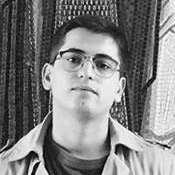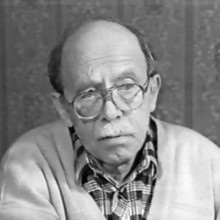[EN] До 15 января принимаются заявки на участие в конференции «Оценка влияния Второй мировой войны в Восточной Европе и Советском Союзе»
Princeton University, 19-20 April 2013.
 1 327
1 327 
Assessing the Impact of WWII on Eastern Europe and the Soviet Union
Princeton University, 19-20 April 2013
Call for Papers
http://impactofwarconference.wordpress.com/
The Second World War transformed Eastern Europe and the Soviet Union. German dreams of racial purity in the East resulted in mass death, displacement, and the near total eradication of East European Jewry. The defeat of Hitler’s Reich enabled the Soviets to extend their own empire in Eastern Europe, as the advancing Red Army brought new territories under Moscow’s control. The enormity of the war’s impact is widely known – and as a result rarely examined in detail. This conference sets out to consider how the experience of war shaped the postwar order. We aim to place the Second World War within a continuum of East European and Soviet history, bridging the prewar, wartime, and postwar eras. What opportunities did the war foreclose, and which did it create? What prewar practices survived or reappeared at war’s end? What new habits emerged, and which of these were ultimately suppressed?
We focus on Eastern Europe and the Soviet Union because their shared wartime history set them apart. This was the main theater of fighting, the epicenter of the Holocaust, and the site of the confrontation between communism and fascism. At the same time, the experience of war was highly differentiated across the region. Some countries were occupied by both Nazi and Soviet troops (Poland, the Baltic States), while others escaped either Nazi (Romania) or Soviet (Yugoslavia) occupation. Some states were German allies during the war; others had puppet regimes installed on their territory; most of the Soviet Union avoided any direct fighting. To what extent did these divergent trajectories produce different postwar outcomes?
Professor Kate Brown (University of Maryland, Baltimore County) will deliver the keynote address.
Papers can address, but are not limited to, the following themes:
Ghosts of War. The war killed millions of people and annihilated East European Jewry. How was their absence felt in the postwar era? How were the dead remembered, commemorated, instrumentalized? Did they continue to “haunt” postwar communities and societies?
War as Revolution. Did wartime leveling facilitate the construction of postwar communism (as Jan Gross has suggested)? Did it promote particular economic and political structures? What patterns of social mobility did the war create?
A Continent on the Move. Millions of people moved during the war and in the immediate postwar years, whether as soldiers, refugees, prisoners of war, or forced laborers. How did movement reconfigure individual and collective identities? To what extent did it reorient social and political networks?
Transitions to Peacetime. How did soldiers and prisoners of war adjust to the postwar order? How did women’s roles change at the war’s end? Were wartime behaviors suppressed, redirected, internalized?
Nation, Socialism, and Empire. To what extent did the war redefine national identities? Did the Nazi and Soviet occupations unite or divide the region? How did the breakdown of nation-states during the war shape postwar nationalist movements, and how did these square with the creation of socialist states?
The Legacy of War. How was the war remembered, represented, and commemorated? What narratives did individuals and collectivities construct about the war? To what extent did official and personal narratives conflict, overlap, or conflate, and how did this affect the relationship between state and society?
We invite papers from advanced graduate students and junior scholars in all disciplines who are working on the countries of Eastern Europe (including Germany, Austria, and Greece) and the former Soviet Union. We are particularly interested in comparative papers that address multiple countries or regions; papers that link the prewar and postwar eras; and those that undertake interdisciplinary work. Applicants should submit an abstract (300 words) and a short CV (2-3 pages) to [email protected] by January 15, 2013. Questions can be directed to the conference co-organizers: Franziska Exeler ([email protected]) or Kyrill Kunakhovich ([email protected]).
Selections will be made by late January 2013. Final papers (10-12 pages) will be due three weeks before the conference. They will be circulated among the participants, to be read in advance of the conference. The university will provide accommodation for two nights. We can make only modest contributions towards travel expenses, and ask all participants to apply for travel funding at their home institutions.




Комментарии